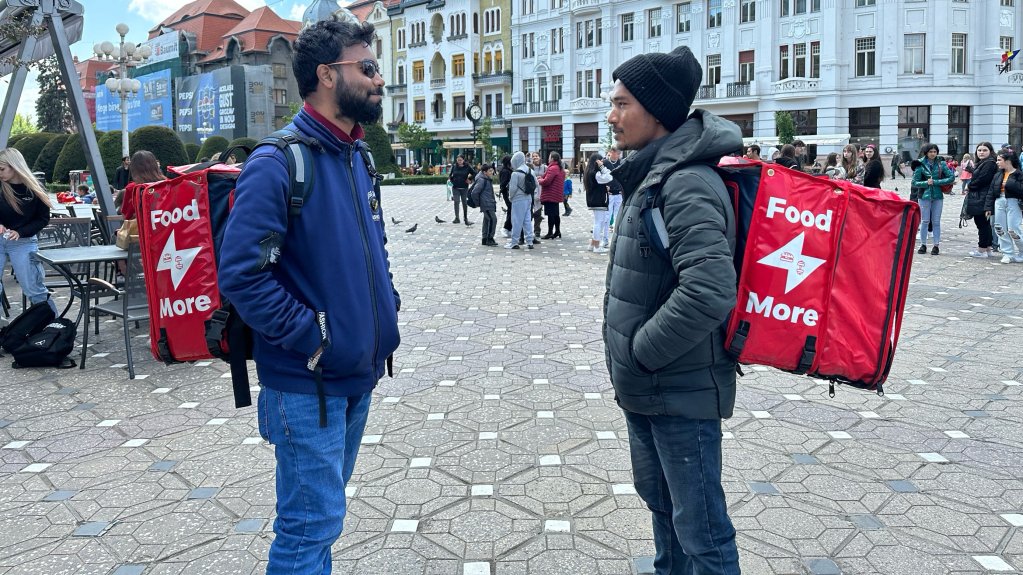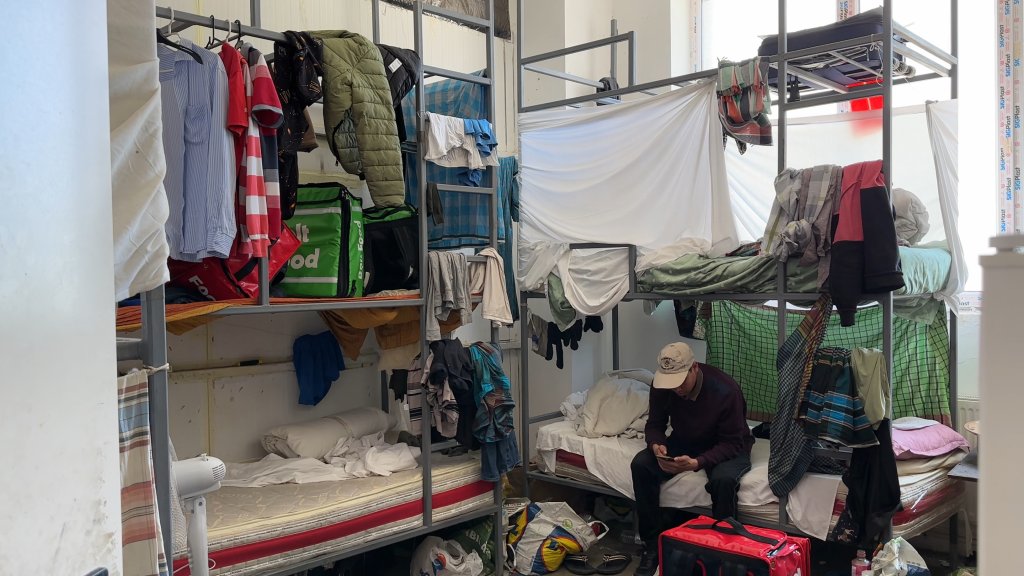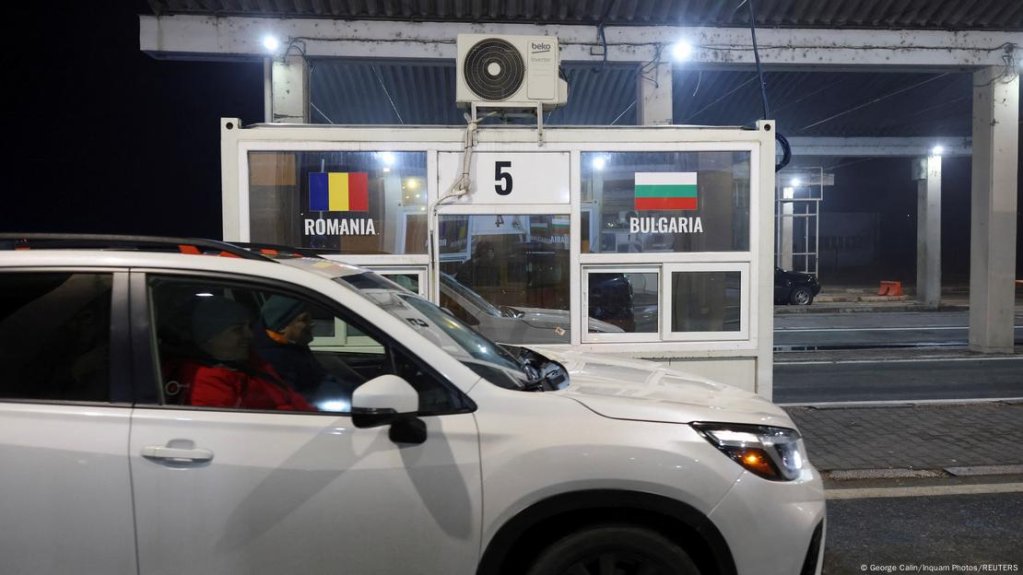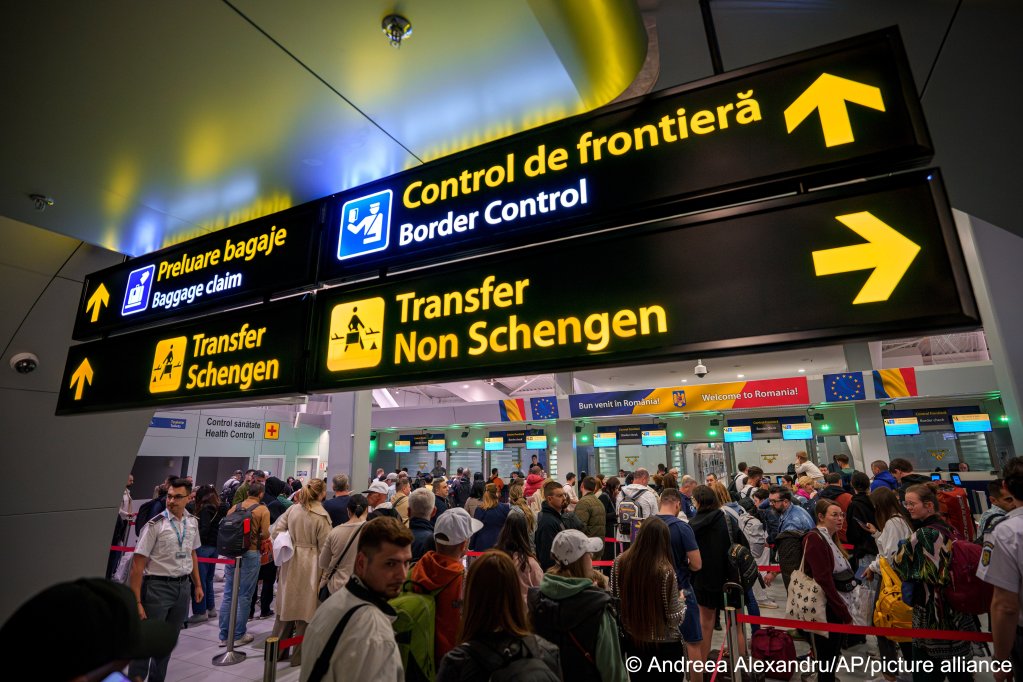Foreign workers are filling Romania’s labor gaps, but amid a surge of far-right rhetoric, online hate, and street violence, many now fear the country that depends on them.
Romania, once known mainly as a source country for labor migration to Western Europe, is now wrestling with a new and troubling reality at home: growing hostility toward foreign workers who have come their to work, and reportedly now face increasing risks of exploitation once there.
In Bucharest, the country's capital, 29-year-old Bangladeshi food delivery rider Sabbirrul Alam no longer dares to work after dark.
"I’m afraid," he told the French news agency Agence France Presse (AFP), explaining that an August assault on a fellow Bangladeshi rider had shaken him.
"I think people have become very angry," said Alam, sporting a black cap bearing the Romanian flag.

That attack -- in which a man reportedly hit a migrant worker on the street while shouting "Go back to your country!" and "You are an invader!" -- came just days after a leader of the far-right AUR party urged Romanians on the social media platform Facebook to refuse deliveries from non-Romanian riders.
Romania’s president Nicușor Dan condemned the assault as an "act of xenophobic violence" fueled by "voices inciting hatred against foreigners."
"Words have real, sometimes dramatic consequences," he wrote on the social media platform X.
Essential yet unwelcome
As Romanians continue to leave for better-paid jobs abroad, the country faces one of the EU’s sharpest labor shortages. By the end of 2024, around 140,000 non-EU workers -- mostly from Nepal, Sri Lanka, Turkey and India -- were officially employed in Romania’s construction, manufacturing, trade and hospitality sectors.
But with their numbers rising, so too has the hostility. Romulus Badea, president of the Employers’ Federation of Labor Force Importers, told AFP that while attacks on foreign workers remain isolated, he hopes they will not "become a phenomenon." He also noted a surge in online hate speech and false claims that "these people are coming to take our jobs."

Images shared on social media show some delivery riders scribbling "I am Romanian" on their food bags -- a quiet act of self-defense in a climate of suspicion.
The Council of Europe’s anti-discrimination body, the European Commission against Racism and Intolerance (ECRI), has warned that "issues of concern are the increasing presence of hate speech in political discourse, in the media and online."
With far-right parties now holding roughly a third of Romania’s parliamentary seats, analysts fear that xenophobic rhetoric is edging closer to the political mainstream. In this climate, misinformation spreads quickly: AUR leader George Simion recently claimed foreign migrants were being offered better housing than Romanians -- a statement the building owner reportedly dismissed, saying the apartments were intended for all workers.
Read AlsoIOM and Human Concern International sign one million dollar agreement to support migrants
Border shifts and policy backdrop
Behind the headlines, Romania’s border dynamics and migration management have changed markedly since 2023. Official reporting shows a sharp decline in irregular crossings and readmissions amid coordinated measures with Serbia, expanded Frontex deployments (including Operation Centurion), and an EU pilot focused on faster asylum and return procedures.

In 2024, border authorities identified about 18,396 foreign nationals at Romania’s borders -- a large share being Ukrainians seeking protection -- while irregular exits fell substantially compared to 2023 as routes shifted after Croatia’s Schengen entry. Bucharest also tightened work-visa compliance rules in 2024. Together, these trends help explain an apparent paradox: more migrants now enter Romania legally to work, yet many still face precarious status, secondary movement risks, and exposure to exploitation once inside the country.
Read AlsoAlmost 4 million non-EU immigrants hold Italian stay permits
Bangladeshis: from regular to irregular migrants
Multiple monitors note that a share of those apprehended trying to exit Romania irregularly had originally entered legally on work visas -- reflecting "secondary movement" toward Western Europe when jobs are not available or promised conditions fall through. Bangladeshis were among the top nationalities detected in 2023 for irregular entries or exits, and officials reported many onward attempts toward Hungary.

Previous reporting by InfoMigrants documents how some Bangladeshi workers recruited to Romania found a situation of unpaid wages, contract changes and dormitory debt, pushing them from regular status to irregularity and, for some, onto Balkan routes. Civil-society associations also describe cases of debt bondage and document confiscation involving Bangladeshi and Pakistani workers in Romania, risk factors that can precipitate onward movement.
Broader coverage of Romania’s reliance on South Asian labor notes that easier mobility after Schengen changes could further encourage westward migration when work dries up.
Read Also'More foreigners in Italy, now 5.4 million' – immigration report
Violence and intimidation spreading
The August assault on Alam’s compatriot was not an isolated case. In early November, a Sri Lankan delivery rider near Bucharest was reportedly hit with a charging cable, spat on and cursed at after a traffic dispute. Though the victim filed a police complaint, he later withdrew it.
A trade union later pledged free legal aid and counselling for foreign workers facing harassment.
"Unfortunately, this is not the first case of its kind, and these repeat offenses are deeply concerning," the union said.
For Ruban Jayathas, a 47-year-old Sri Lankan IT worker who has lived in Romania for more than 15 years, the shift is palpable.
He told AFP that while most Romanians remain welcoming, online hate is "picking up momentum...I wouldn’t have imagined it before," he said.
Read AlsoVideo: Is racism taking root in Romania?
Trafficking report: from victims abroad to victims at home
The climate of hostility coincides with fresh warnings from the Council of Europe’s Group of Experts on Action against Trafficking in Human Beings (GRETA), whose new report finds that Romania has improved its anti-trafficking laws but still fails to protect vulnerable groups effectively.
Between 2020 and 2024, Romanian authorities identified 2,662 victims of human trafficking, nearly half of them children. While most victims were Romanian nationals exploited either domestically or abroad, GRETA notes that the country is also increasingly becoming a destination for traffickers and their victims. The main form of exploitation was sexual exploitation, followed by forced labor, forced begging and exploitation in criminal activities.

GRETA highlights heightened risks for migrant workers from South Asia, citing language barriers, deceptive recruitment practices and inadequate labor oversight. It urges authorities in Bucharest to license recruitment intermediaries, strengthen labor inspections, and monitor fraudulent online job offers.
Although 764 individuals were convicted of trafficking offenses in 2020-24, few victims receive compensation, and long proceedings plus limited specialization among investigators and judges weaken deterrence. GRETA also stresses the need for adequate shelters, healthcare access, and proactive victim identification.
Read AlsoGermany: Trial begins for suspected sex traffickers
A crossroads for Romania
Romania has launched a National Strategy against Trafficking in Human Beings (2024–2028) and set up an interministerial coordination committee -- steps GRETA welcomed. Yet laws and strategies will be judged by their impact on the people who keep Romania’s economy running: the construction crews, factory workers and delivery riders who too often reportedly face hostility on the street and vulnerability at work.
As xenophobic rhetoric appears to rise, so too does the risk that those workers will become not only targets of hate but also victims of exploitation.
"Words have real, sometimes dramatic consequences," President Dan reminded the public. For migrant workers like Sabbirrul Alam, those consequences have already translated into fears that are affecting him, and his ability to do his job, daily.
Read AlsoEU draws the lines on upcoming migration 'solidarity pool' and how it will be implemented
With AFP
